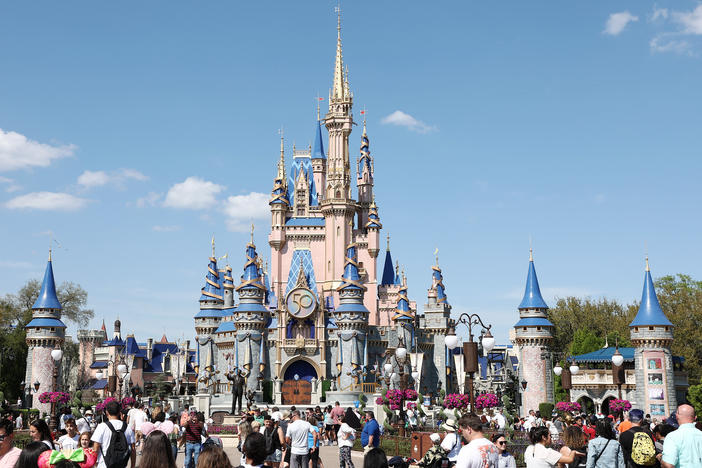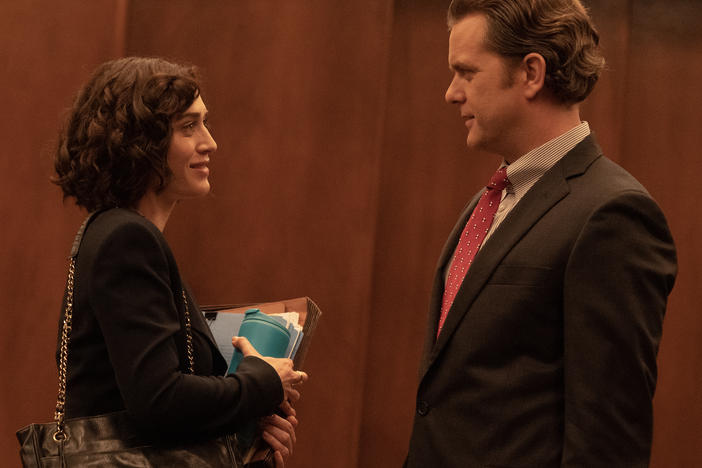Section Branding
Header Content
The new Downton Abbey film is here, and its creator says misery isn't compulsory
Primary Content
Try as he may, Julian Fellowes can't seem to escape the Crawley family and their antics.
It might be because Fellowes is the executive producer and creator of Downton Abbey, the smash hit television series that spanned six seasons and one movie spin-off, focusing on the lives and legacies of fading nobility in the Yorkshire countryside. This, of course, includes plenty of drama, betrayal and lies; think The Kardashians with British accents and a lot less spray tan.
Despite many plot lines seeing resolution in the eponymous 2019 film adaptation, Fellowes and the Crawley family are back with Downton Abbey: A New Era set for release in theaters this week.
Fellowes spoke with All Things Considered about what lies ahead in this new chapter, the relatability of aristocrats in our modern age, and the excess of misery in modern media.
The interview has been edited for brevity and clarity.
On just wanting people to watch his movies and enjoy themselves
Yes — cry a bit, laugh a bit. Sometimes you hope you've sort of provoked a reasonably interesting thought they'll consider later when they're, you know, sitting in the traffic, waiting for the light to change. I mean, I feel a strong part of the entertainment industry is to entertain. I'm not really trying to provoke the French Revolution. You know, I just like to make people think about things, maybe change their attitude.
On telling the story of a privileged white family for a modern audience
I mean, we're looking at a certain way of life. It involves some privileged people. It involves more unprivileged people. In my own head, among the servants, you get the different types. You get the ones who are resentful and unhappy like O'Brien. You get the ones who adore the family and worship them and see them as their soap opera like Carson. You get the ones for whom it was a job, who I am quite sure were in the vast majority, like Mrs. Hughes. And I think that's a fairly truthful reflection of that society.
I think in the end, you know, when you're going to make any film, any TV show and write a book, what you're trying to do is to tell a reasonably truthful story about a group of people. I mean, this modern thing, present thing that nothing is valid that isn't about misery — I don't agree with that. I think misery is fine to investigate and to dramatize and all the rest of it, but I don't think it's compulsory.
On the longevity of the Downton Abbey franchise
I'm not going to go on forever. So I think there would be a real difficulty getting Downton to go on forever. Whether it's come to an end or not, I couldn't tell you.
One of the other things is that during the lifetime of Downton, the whole nature of showbiz, of how you make films, of how they're released, the platforms — all of this is different from what it was 15 years ago — I mean, quite different. Now, of course, people complain about it one way. But I think it also is constantly throwing up new opportunities, new chances, new ways of doing things. And, you know, I like that. I think that's interesting. And I like being part of it. So if Downton is to be reborn in a different shape or size, then, you know, I hope I'm part of that.
Copyright 2022 NPR. To see more, visit https://www.npr.org.
Bottom Content




